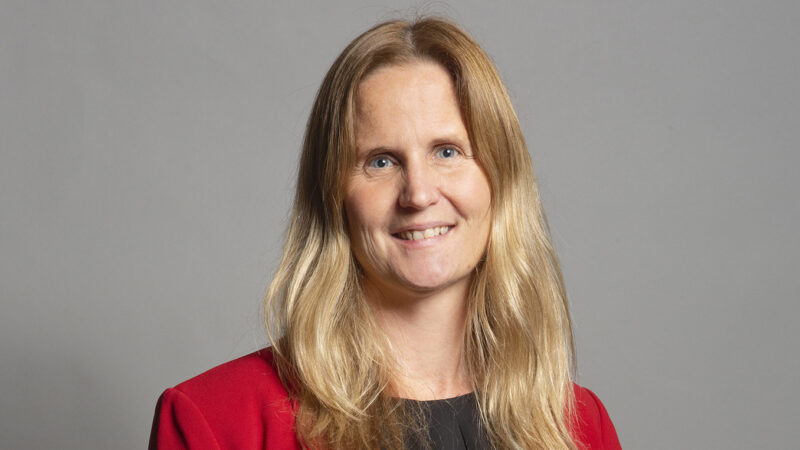
Nestled between the perhaps better-known South Wales constituencies of Merthyr and Rhondda lies my constituency of Cynon Valley, ‘the Queen of the Valleys’. It is one of the reasons Wales is known as the ‘Land of Song’.
This once rural area was transformed by the industrial revolution into a thriving and close-knit community built around the coal, iron and steel industries. These industries brought tens of thousands of jobs, and our culture grew up around them. Our proud chapel and choral cultures, the distinctive terraces of houses built up the mountainsides, the working men’s clubs and thriving local businesses.
When the Tories dismantled the mining industry, with callous disregard for the impact that would have on workers and their families, they gutted those vibrant local economies. Our valleys communities have since become synonymous with the demise of the very industries on which they were built. We have never been able or enabled to recover from this position. In fact, it has been compounded by a decade of brutal Tory government austerity.
Cynon Valley is now the fourth most deprived area in Wales, with a quarter of people living in poverty and even higher rates among children (35%). Income levels are low, with a higher-than-average number of benefit claimants. Incidence of chronic ill health remains high. Car ownership is relatively low, and there are few white-collar jobs. The local economy is dominated by low-waged, insecure employment. Our young people too often feel that they have no choice but to look elsewhere for their futures.
The Covid pandemic has exposed and exacerbated the hardship and inequality that exists here. Rhondda Cynon Taff has tragically suffered the third highest Covid death rate in the UK. This has been attributed to a mix of factors, most notable of which are the decades of socio-economic deprivation coupled with long-standing health inequalities.
This Tory government, with its huge majority and millionaire leadership, understands little and cares even less about us and the hardships we face. Indeed, it actively works against our interests. The levelling up agenda is a sham and a shambles, the loss of the Universal Credit uplift will affect many of my constituents, as will the threat to the triple lock on pensions and their continued profiting from the mineworkers’ pension scheme.
Historically, very little of the wealth produced by these communities has remained here. For too long, capitalism has channelled resources out of places like Cynon Valley, and into London and the South East of England. That must change. The Tories aren’t going to fix this for us. We must do it ourselves – and we can.
To characterise Cynon Valley as a failing post-industrial community that lives with a romanticised view of its past is misleading. To do so is to fail to understand the strength and determination of the people of Cynon Valley. We look to the future, with pride in our industrial past.
We know the solutions to our problems lie in our communities and that these solutions must be bold if we are to create a more fair and equal society and avert a climate catastrophe. We know there are alternative ways of running society, and we want to build our future on the principles of equality and fairness with a modern, green and prosperous local economy.
Two of my key pledges when standing as an MP were to: (i) work alongside constituents to identify priorities for action and find solutions; (ii) promote and build on all that is good about the Cynon Valley. These pledges underpin everything I do.
Taking a grassroots, bottom-up approach, I have started the process of involving local people with a resident survey seeking their priorities and organising local seminars on climate crisis to feed into COP26. I’ve also established three advisory groups – post-Covid economy, welfare benefits and constitutional matters – with a range of local people and organisations to advise and inform what I do.
I have now commissioned the Bevan Foundation, a well-established Welsh public policy research body named after Aneurin Bevan, to undertake independent research on the impact of the pandemic on the economy and labour market in Cynon Valley. It will be led by and feed into my post-Covid economy group, and will:
- Consider the economic assets and potential in the Cynon Valley through the lens of community wealth building;
- Assess the current position of the economy and labour market in Cynon Valley, including the impact of the Covid pandemic and prospects for a sustainable recovery; and
- Explore the effectiveness of existing policies and actions to strengthen Cynon Valley’s economy and employment.
When the research is published, it is vital that we come together as a community to talk about the way forward. To turn recommendations into actions. Cynon Valley could be an example of how local people can make a difference when they feel a sense of ownership over their future. By working together in Cynon Valley, we can achieve a fairer future for all.




More from LabourList
Government announce SEND reform in schools white paper
SPONSORED: ‘Industrial hemp and the challenge of turning Labour’s priorities into practice’
‘A day is a long time in politics, so we need ‘action this day’’